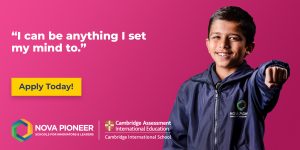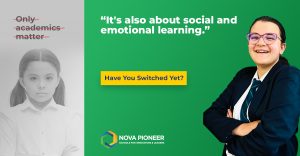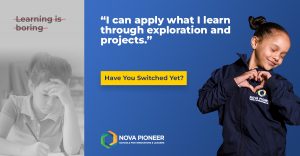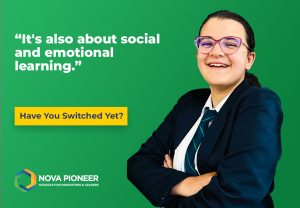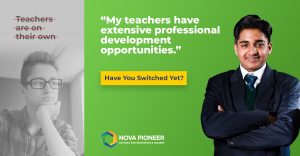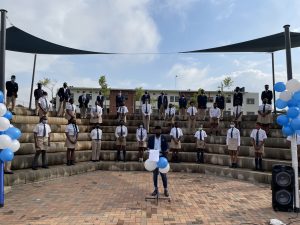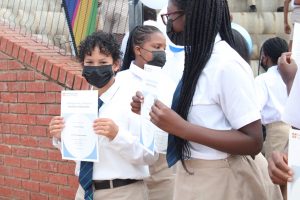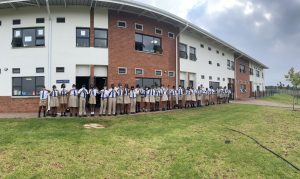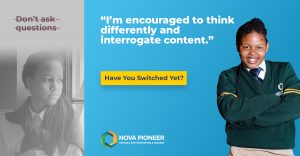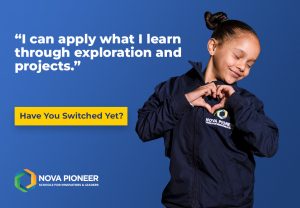“We don’t think so, my lord. Why, then, ’tis none to you, for there is nothing either good or bad, but thinking makes it so” – Hamlet, William Shakespeare In the month of July, we as South Africans were challenged to confront threatening, destabilising events and emotions, due to the social tensions
“We don’t think so, my lord. Why, then, ’tis none to you, for there is nothing either good or bad, but thinking makes it so” – Hamlet, William Shakespeare
In the month of July, we as South Africans were challenged to confront threatening, destabilising events and emotions, due to the social tensions and unrest. Moreover, questions regarding our own biases and opinions on the unequal structure of society were subtly posed to us all. In confronting these issues, our perception of the events and people alike has been a powerful tool in shaping our experience of the unrest seen in our country.
In this sense, as unfortunate as events have been during that ill-fated week in July, that moment in time gave us an opportunity to contemplate our views on our society and interrogate how far we allow our own biases to dictate what we perceive of a given situation.
In dissecting significant occurrences of social upheaval, as witnessed in the unrest last month, many (particularly the media and our leaders) tended to simplify the causes behind the unrest, in an attempt to create an easy-to-understand, dominant perception across the citizenry. This inaccurate characterisation of events was perpetuated on social media, as I discussed recently on The JM Podcast, where people would bandwagon and justify viral viewpoints, without any form of prior independent thinking.
The unrest, or ‘looting’ as has been established by mainstream media, cannot be simply attributed to unruly human behaviour. Rather, a culmination of various factors – poor governance, corruption, criminality, poor defence capabilities, classism, poverty, hunger, unemployment, social inequity (all of which were exacerbated by the pandemic) – gradually accumulated over a sustained period of time, ultimately erupting, facilitated by the less pleasant side of human nature.
All of these factors combined to produce the anarchy we all witnessed occurring on the news, and for some, in their own communities. A well-informed background and understanding of the context of the unrest we witnessed is pivotal for one to fully appreciate the destructive occurrences of social unrest.
In our respective reactions and observations of what we saw happening around us, we ought to practice empathy and perspective, over moralism and judgementalism. As has been become common knowledge in human psychology, we are prone to viewing people, national events, personal situations etc., through an emotional lens. We tend to project our personal and emotional needs during interactions we have with the world around us. At the end of the day, we are emotional creatures.
It is virtually impossible to reverse the thousands of years of evolution in our genetic makeup as humans. Therefore, taking the cognitive decision to emotionally detach ourselves, in certain instances, when forming opinions on events, is a significantly liberating decision to take. In this regard, emotionally detaching ourselves from the world around us, essentially enables us to see people or events for who and what they really are. Doing this limits the influence our emotional needs and biases have on our perception of a person, event, belief system etc. In this way, you are not being blinded by your own emotions or prejudices, but seeing people as they are.
This is something we ought to do the next time we face such events, in order to appropriately consume what happens around us in a more objective, empathetic manner. This is something I believe many of us lacked – resorting to judging and moralising over people who participated in the looting, without acknowledging our own varying levels of privilege. It is much better to practice empathy especially during a time where we witnessed people expressing their long-held frustrations over their own country, which has continuously failed them and excluded them from economic opportunities. That is not to justify the irresponsible actions of a minority, but to view such situations with an acknowledgment of the social inequality that still persists in our 27-year-long democracy.
Lastly, it remains extremely important to understand the causes of the issues we face as a country. However, instead of fixating on the problem, our leaders ought to apply their minds to finding effective, lasting solutions. Like Novaneers, we ought to be guided by both independent and collaborative thinking alongside a solutions-based approach to our country’s challenges. Importantly, in all we do, it is vital to continue cultivating a sense of hope that we have seen the worst and are finally heading into a period of sustained prosperity. Now is the time to celebrate our resilience and look to the future with optimism and a firm willingness to collectively solve the problems our beautiful country faces.
